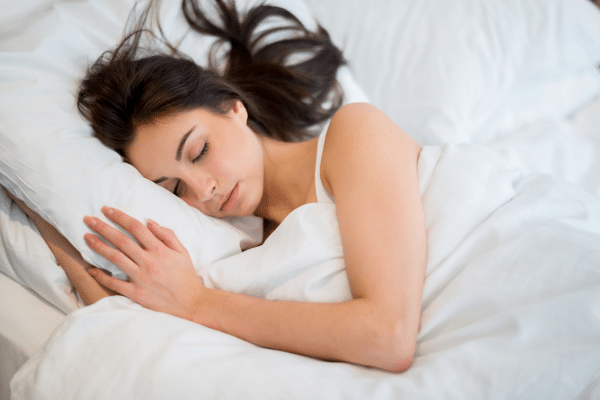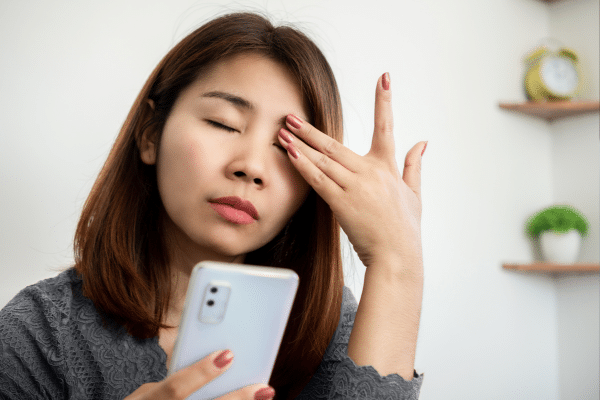Anxiety is a common challenge, affecting countless individuals in various ways. It can manifest as a persistent sense of worry, a flurry of uncontrolled thoughts, or even physical symptoms like a racing heart. Fortunately, there are effective strategies to manage and alleviate these feelings. This blog post explores simple, yet powerful steps that can be taken to combat anxiety. From meditation to maintaining a healthy lifestyle, each section provides practical advice for those seeking relief from the often overwhelming grip of anxiety.
Contents
Meditate

Meditation has gained recognition as a powerful tool for managing anxiety. It involves practices that encourage focus, calmness, and a heightened state of awareness. Meditation works by redirecting thoughts away from the incessant worries and stresses that fuel anxiety. Regular practice has been shown to lower cortisol levels, the body’s stress hormone, promoting a sense of peace and well-being. It’s not about emptying the mind but learning to observe thoughts without judgment, which in time, helps in gaining control over them.
The beauty of meditation lies in its flexibility and accessibility. It doesn’t require special equipment or a lot of time. Beginners can start with just a few minutes a day, gradually increasing the duration as they become more comfortable with the practice. Guided meditations, available through various apps and online platforms, can be particularly helpful for those just starting out. They provide structure and guidance, easing the learner into the practice. It’s important to find a quiet, comfortable space and be patient, as the benefits of meditation are often cumulative.
Surround Yourself With Positive People

The company one keeps plays a significant role in how one feels and processes emotions. Being around positive people can act as a buffer against the symptoms of anxiety. These individuals provide support, understanding, and a different perspective that can be crucial in challenging negative thought patterns. Positive social interactions have been shown to boost mood and increase feelings of happiness, which can counteract the effects of anxiety.
However, it’s not just about seeking out positive relationships, but also about limiting exposure to negativity. Negative people or those who consistently induce stress can exacerbate feelings of anxiety. It’s essential to set boundaries with such individuals and, if necessary, distance oneself. This doesn’t mean completely cutting off relationships but rather prioritizing interactions that are uplifting and beneficial. Engaging in group activities that align with one’s interests can be a great way to meet like-minded, positive individuals.
Exercise

Physical activity is a potent antidote to anxiety. When one engages in exercise, the body releases endorphins, chemicals that act as natural painkillers and mood elevators. Regular exercise has been found to decrease overall levels of tension, elevate and stabilize mood, and improve sleep. Whether it’s a brisk walk, a cycle ride, or a yoga session, exercise works almost like a natural medication for anxiety.
Starting an exercise routine doesn’t require drastic changes; it’s about incorporating more movement into daily life. This could mean taking the stairs instead of the elevator, going for a walk during lunch breaks, or joining a dance class. The key is to find activities that are enjoyable, which makes it easier to stick to the routine. It’s also important to set realistic goals. Even a small amount of activity is better than none, especially when starting out. Over time, as endurance and strength build, the duration and intensity of exercise can be increased.
Eat A Healthy Diet

A healthy diet plays a crucial role in managing anxiety. Foods rich in vitamins, minerals, and antioxidants can help regulate mood and relieve stress. For example, omega-3 fatty acids found in fish are known for reducing anxiety levels. Whole grains, which release glucose slowly into the bloodstream, help maintain consistent energy levels and mood. On the other hand, high-sugar and processed foods can have the opposite effect, leading to energy crashes and mood swings.
Incorporating a variety of fruits, vegetables, lean proteins, and whole grains into meals is a great starting point. Hydration is also key; drinking enough water throughout the day can help prevent dehydration, which can sometimes be mistaken for anxiety. Planning meals and snacks can prevent impulsive eating of unhealthy foods when one is hungry. Remember, changing dietary habits doesn’t happen overnight. Small, consistent changes are more sustainable and beneficial in the long term.
Get Adequate Sleep

Sleep and anxiety have a bidirectional relationship. Poor sleep can exacerbate anxiety, and anxiety can make it difficult to get a good night’s rest. Ensuring adequate sleep is essential for mental health. Sleep helps the brain process emotional information. When sleep is compromised, the body struggles to regulate emotions and stress hormones, often leading to increased anxiety.
Creating a restful environment is vital for good sleep. This means a dark, quiet, and cool bedroom. Establishing a consistent sleep schedule helps regulate the body’s internal clock. Avoiding caffeine and heavy meals before bedtime can also improve sleep quality. For those who find their mind racing at bedtime, relaxation techniques like deep breathing or progressive muscle relaxation can be beneficial. Remember, it’s not just the quantity of sleep that matters, but also the quality.
Limit Screen Time And Social Media

Excessive screen time and social media use can contribute to heightened anxiety. The constant barrage of information and the pressure of social comparisons can be overwhelming and stress-inducing. Reducing screen time, especially before bed, can help alleviate these symptoms. Blue light emitted by screens can disrupt sleep patterns, further contributing to anxiety.
Setting specific times to check social media or emails and sticking to these limits can be beneficial. Finding alternative activities, such as reading, outdoor hobbies, or spending time with loved ones, can provide a healthy balance. It’s also important to be mindful of the content consumed. Engaging with uplifting and positive content can have a markedly different effect on mental health than negative or stressful content.
Journal

Journaling is a simple yet effective tool for managing anxiety. It provides an opportunity to express thoughts and feelings in a safe, private space. Writing about worries and fears helps to clear the mind and can make challenges seem more manageable. It also allows for tracking of symptoms and triggers, making it easier to identify patterns and develop coping strategies.
The approach to journaling can vary; there’s no right or wrong way to do it. Some find benefit in free-writing, letting thoughts flow without concern for structure or grammar. Others prefer structured prompts or gratitude journaling. The key is consistency. Even a few minutes each day can provide significant benefits. Journaling can be a reflective and meditative practice, offering a moment of pause in a busy day.
The Bottom Line
Anxiety is a multifaceted issue, but there are various simple strategies that can be employed to alleviate its symptoms. Each method discussed – from eating a balanced diet to getting adequate sleep, from limiting screen time to journaling – offers a piece of the puzzle in managing anxiety. While these steps are straightforward, their effects can be profound. Remember, the journey to overcoming anxiety is a personal one. The most effective approach is often a combination of these strategies, tailored to individual needs and lifestyles. Taking small, consistent steps towards incorporating these practices can lead to significant improvements in mental well-being.


